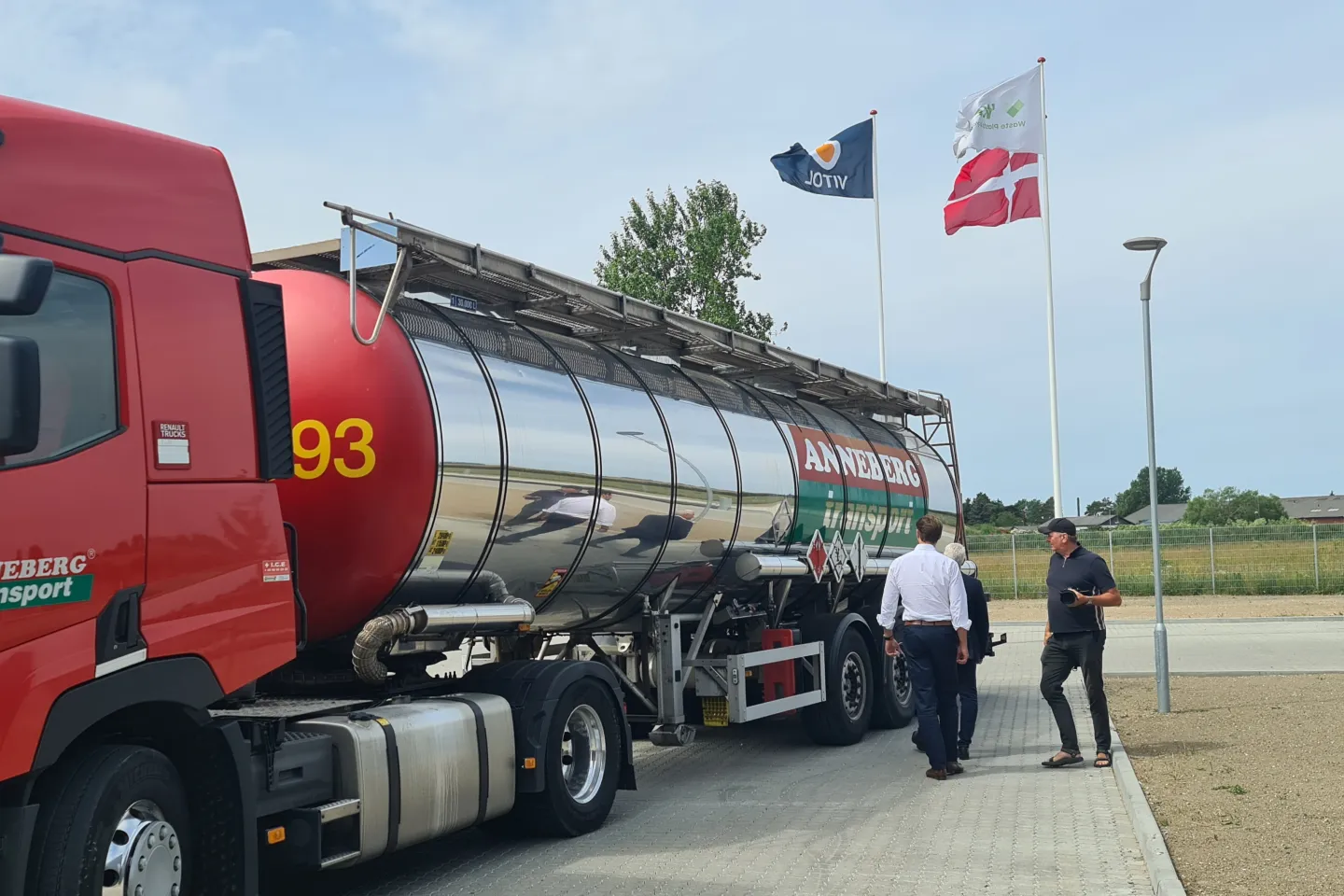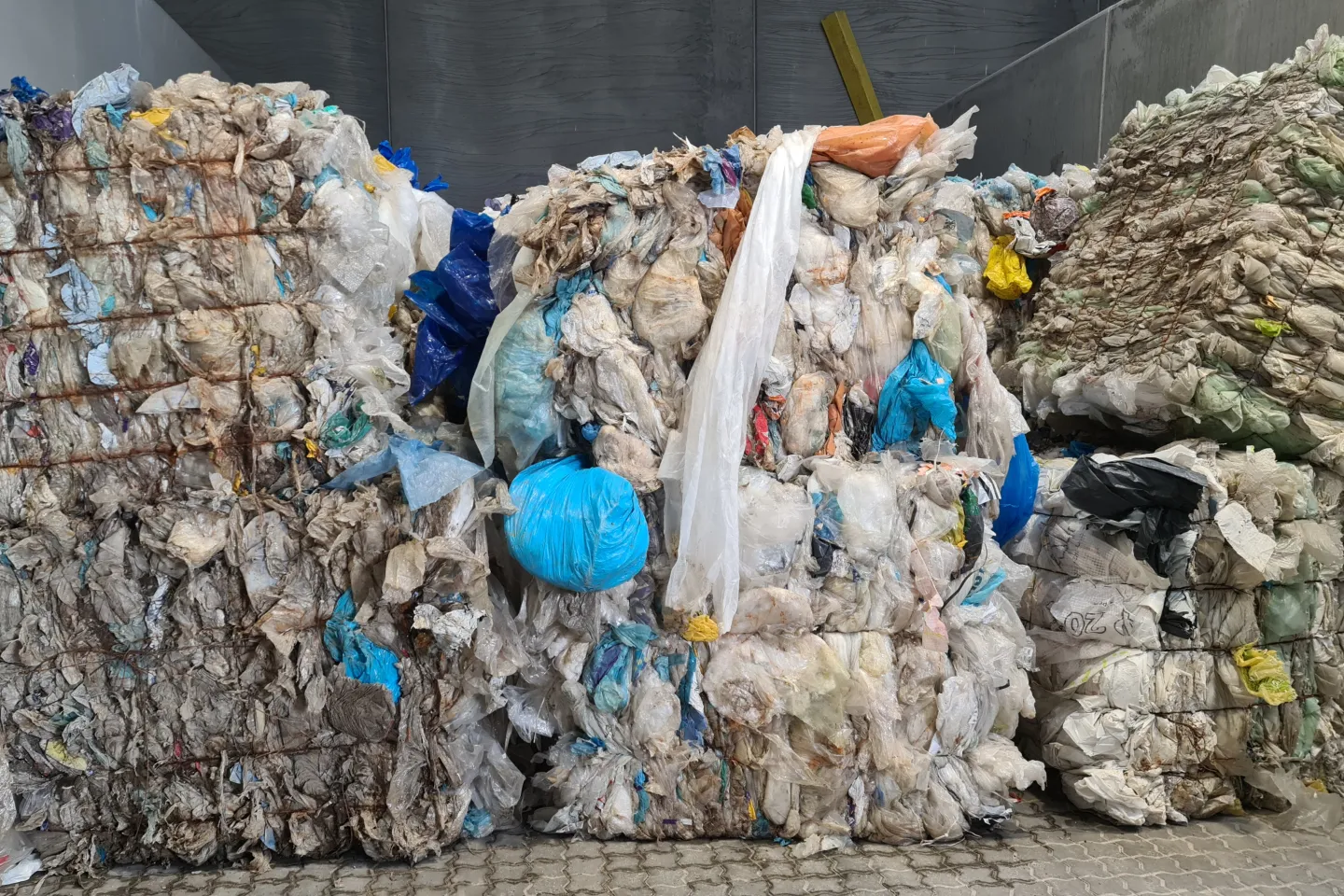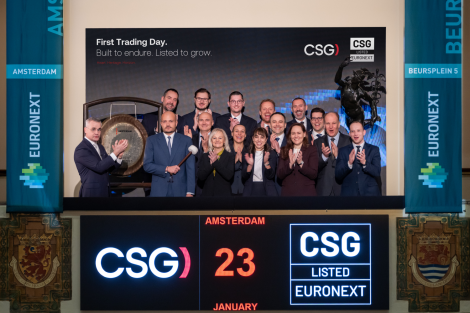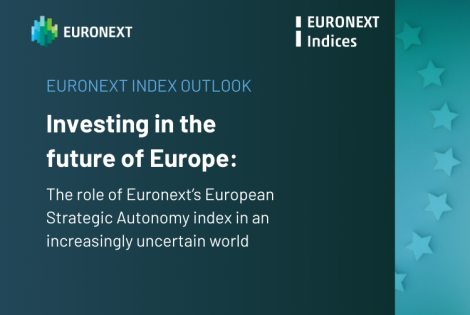Listing your company’s shares on the stock market is a great way to finance your growth. But first you have quite a few decisions to make. Is going public right for you? Where should you list? And when is the right time to do it? In this article, we look at the choices Danish cleantech WPU made, and how listing internationally has contributed to its success.
Taking your company public offers several advantages. It can be an effective way of increasing your company’s domestic and international profile. It can help you to raise the needed capital to achieve your company’s growth and strategic ambitions. And it can improve your ability to attract and retain top talents. To get the most out of these advantages, you need to choose the right stock market for your company. And that may not necessarily be the market in your home country. For example, over 200 of the companies listed on the Euronext stock exchange come from outside of its seven countries.

Why a Danish cleantech company listed on Euronext
One example of a company that decided to list outside of its home market is Waste Plastic Upcycling (WPU), which took the decision to list on Euronext Growth Oslo. Based in Denmark, WPU transforms waste plastic into plastic oils, which can be used to produce new plastic. The company had plans to build three production facilities with a total capacity to process 159,000 tonnes of plastic waste annually, and needed to raise capital to realise these ambitions.
For WPU, it was about finding the right market for its product and unique value proposition, as Klaus Lindblad, Global Head of IR and Board Member at WPU, explains.
We started off looking at the various venues in Denmark, Norway and Sweden, and it was quite clear that we weren’t ready at that time to list on a regulated market. We needed to go on a growth market.
The company chose Euronext Growth Oslo because of its strong green profile, inspired by peers that had already listed there. “At that time, there were several other upcycling companies on the market. Norway also has a very active energy market, so we felt we could reach investors interested in that sector,” he says. “It’s good for business to be amongst others with the same focus area and ambitions. We could also be closer to experts who knew how to use our product.”
How going public supported WPU’s growth ambitions
WPU needed capital to accelerate its growth and decided to list through a private placement, which was the best match for its objectives. “We looked at the IPO process and we opted for doing a private placement first because then we could be sure about the results. This option gave us a lot of certainty that we would be able to meet the thresholds and fulfil the conditions to raise the capital we needed.” WPU successfully raised €3 million through a private placement, and by the time of its admission to Euronext Growth Oslo had reached a market capitalisation of €74 million.
We were able to raise the funds we needed to fulfil our ambitions and the plan we had for that time, and then we could build on top of that foundation.
Klaus Lindblad, Global Head of IR and Board Member at WPU

A crucial step on WPU’s growth journey
Almost 18 months after its initial listing, WPU is still benefitting from the decision to list on Euronext Growth Oslo.
“The interest we’ve seen after the listing has been – and still is – very impressive,” relates Klaus Lindblad.
Being a publicly traded company gets you respect and credibility from financial institutions and other parties, and we get a lot of attention from potential investors.
WPU has also been able to use its listing as an effective communications platform to raise awareness for the company’s unique upcycling process. “It can be a bit challenging to help people understand what we do. So, we use our news feeds and exchange notices as communication tools to help the public understand the role we play in waste recycling and sustainability. This has helped us to get a lot of international attention in media outlets from North America to Asia. I don’t think we could get the same level of interest from international news media if we were only a private company.”
Tip #1: Evaluate your company’s potential and readiness
When it comes to making the decision to go public, Klaus Lindblad says it all starts with scalability. “The first and most important step is to look at your business and your product and ask yourself if it can be scaled,” he says. “If you can answer ‘yes’ to that question, the next step is to speak with a wide range of financial and legal advisors.” And once the advisors get involved, companies should prepare themselves for, and indeed embrace, the accompanying scrutiny.
Tip #2: Use the listing as an opportunity to set out your strategy
While the workload involved in preparing the prospectus or information memorandum might seem daunting, in Klaus Lindblad’s experience, it’s time well spent. “It’s very important to have a good prospectus. During the first year after we had listed, we received quite a few questions from people about various developments. And each time, we could refer back to the information memorandum and show that we had disclosed this information. So, from the company’s perspective, it’s a good document that we could use in many different situations after the listing.”
Tip #3: Focus on the long-term perspectives
When the time comes for your company to go public, it's important not to focus solely on the issuing price. “There’s always a huge focus on the issuing price, and many might be disappointed when that price doesn’t meet their expectations. But they have to remember that the real value is created 12 months or more down the line. At that point in time, the company’s value may have doubled or tripled, and that’s far more interesting than the issuing price, in my opinion,” says Klaus Lindblad.
WPU benefitted from the stock market’s share price formation process to optimise and safeguard the fair value of the company. “In the period leading up to our private placement, we got a lot of attention from different parties wanting to invest in our company. Listing on an exchange is expensive, but it’s a very efficient way to get protection from these kinds of offers, because now the price level is set. If others want to join us on our journey, they’re welcome, but this is the price.”
Going public is just the starting point
After listing on Euronext Growth Oslo in 2022, WPU completed construction of its first waste upcycling facility in early 2023. In April, the company ran its first process cycle at the new facility, using its unique Batch Technology to produce high quality pyrolysis oil. The construction of two new commercial facilities is on track for 2024 as the company continues its growth journey.
Fact box #1: Choosing the right market
There is a market for every company’s profile and needs. While large established companies may choose to list on Euronext’s EU Regulated Markets in one or more of the seven Euronext listing venues, smaller companies can opt for Euronext Growth or Euronext Access, which offer lighter requirements and are especially designed to support ambitious start-ups and SMEs. Benefits can vary depending on the market or listing venue a company joins, such as peer group, inclusion in a specific national or sectorial index, investors or sectorial expertise. Whatever the path you choose, listing on a Euronext market will give you access to global capital markets to finance your growth ambitions
Learn more about how to go public and useful tips in the Euronext IPO Guide:
Download the IPO Guide | Euronext
Fact box #2: Why companies choose Euronext as their international listing partner
As the number one venue for equity listing in Europe and debt listing worldwide, Euronext is a gateway for international companies to access European economies and global capital markets. Our listing venues in seven countries are connected to Europe’s largest liquidity pool through our single trading platform. We are home to almost 2,000 equity issuers who can access a pool of over 6,400 institutional investors from 75 countries.
Learn more about international listing on Euronext:
International listings | Euronext.com








